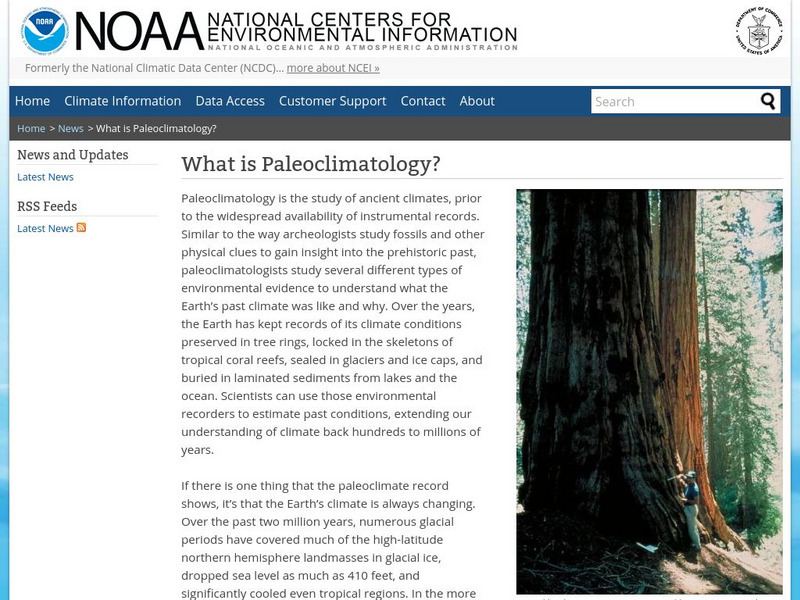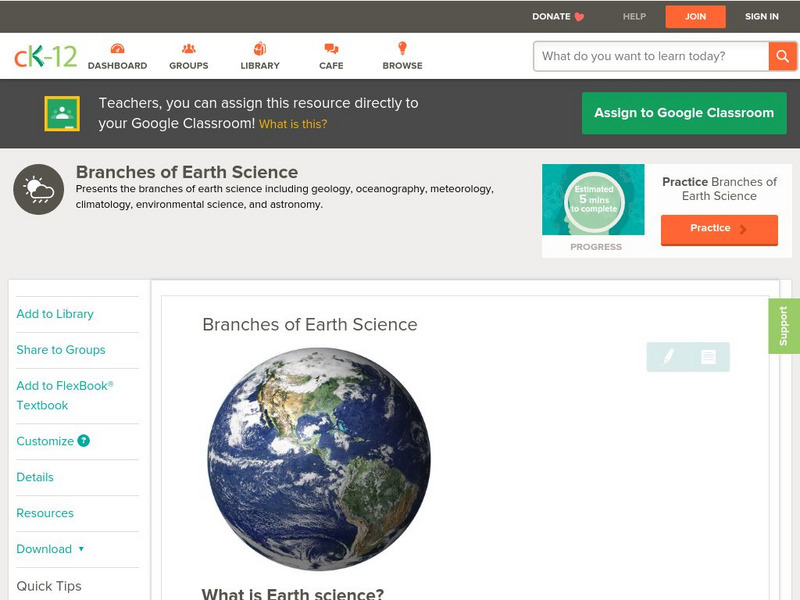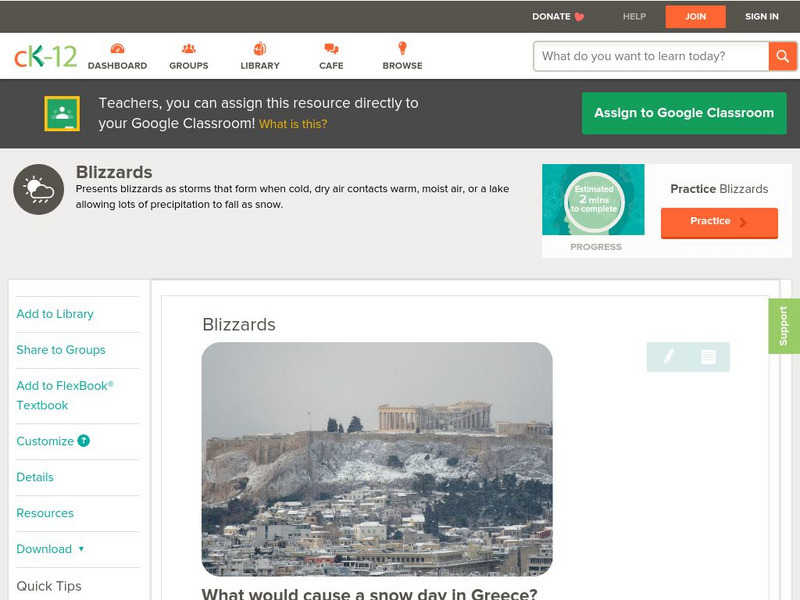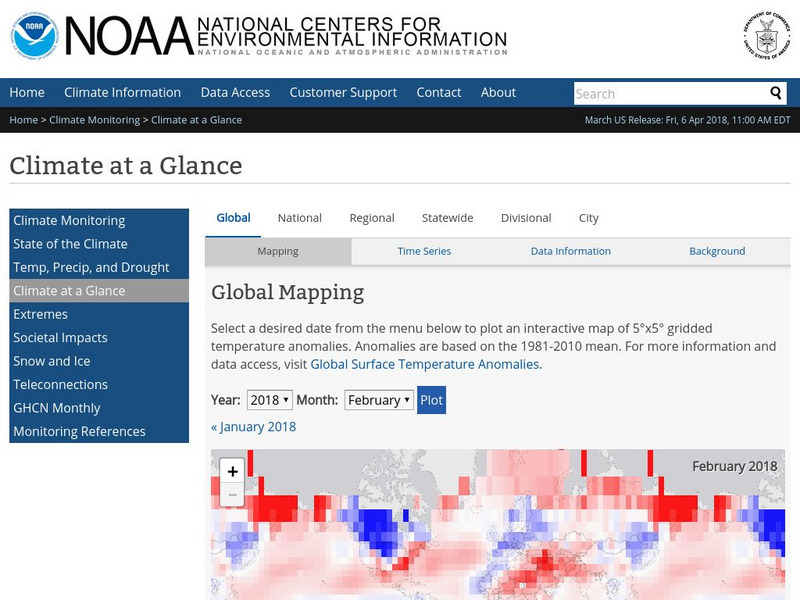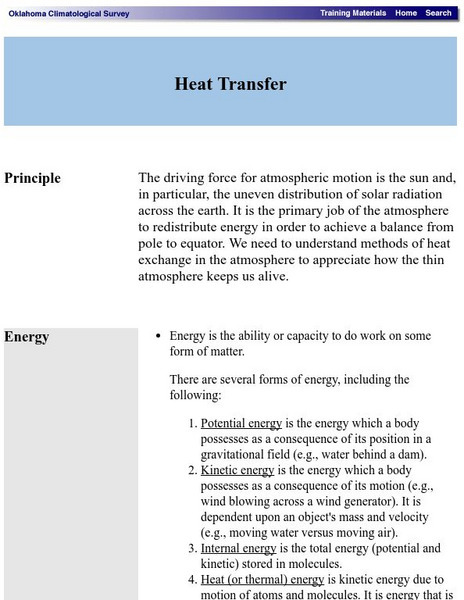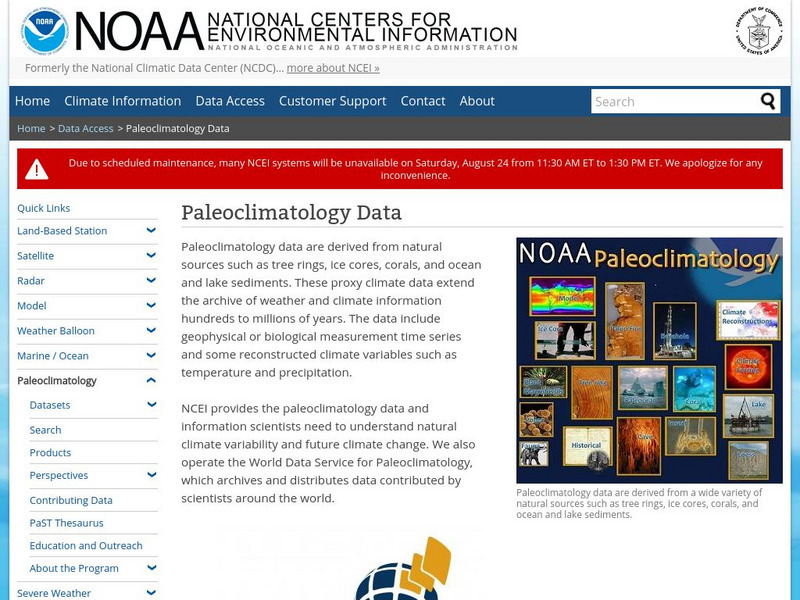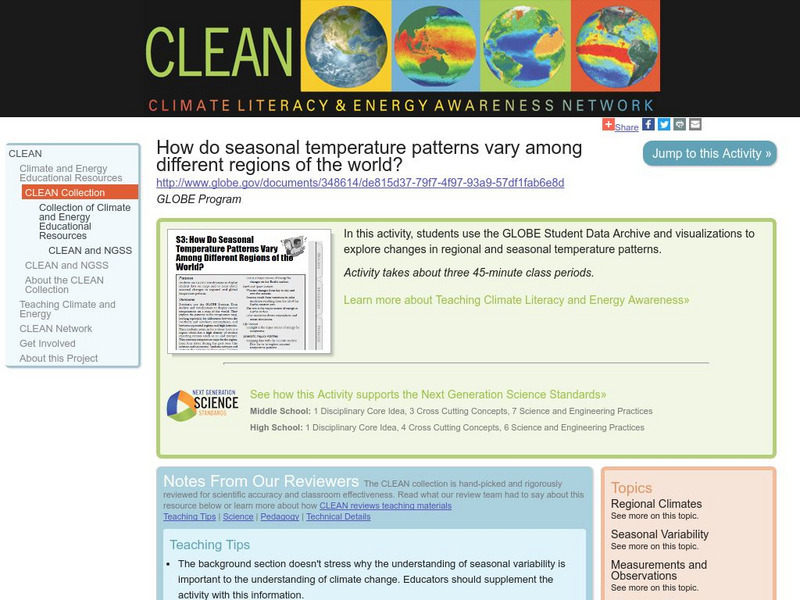Hi, what do you want to do?
Geography 4 kids
Geography4 kids.com: Instruments of Climatology
Identify the tools used to measure various aspects of climatology like a barometer.
NOAA
Noaa: What Is Paleoclimatology?
An introduction from NOAA to the study of Paleoclimatology. Provides link to the NOAA's Paleoclimatology Data page where there is a great deal of more information.
Science Education Resource Center at Carleton College
Serc: In Search of Globe Data
Students use GLOBE search tools to locate and display data from schools, and then use the data to answer questions regarding weather and climate.
NASA
Nasa: Climate Kids: The Climate Time Machine
Check out this interactive timeline which illustrates how earth's climate has changed throughout history.
NASA
Nasa: Climate Kids: Research
Read about all the important work NASA scientists have uncovered about climate science.
American Geosciences Institute
American Geosciences Institute: Earth Science Week: Climate Visualizations
These six interactive visualizations to help students understand different aspects of the climate.
NASA
Climate Kids: Climate Change Trivia
Fun website for kids on earth science presents trivia game in which students can test their knowledge on what they have learned about climate.
CK-12 Foundation
Ck 12: Earth Science: Branches of Earth Science
[Free Registration/Login may be required to access all resource tools.] Overview of the major branches of Earth Science.
CK-12 Foundation
Ck 12: Earth Science: Branches of Earth Science
[Free Registration/Login may be required to access all resource tools.] Overview of the major branches of Earth Science.
CK-12 Foundation
Ck 12: Plix: Branches of Earth Science
[Free Registration/Login Required] An interactive concept map that shows how the different branches of earth science. After completing the concept map, students can test their knowledge with a "challenge me" quiz.
NOAA
Noaa: National Climatic Data Center: u.s. Climate at a Glance
Allows you to search over 100 years of monthly climate data in maps, charts, etc. for the variables temperature and precipitation. See how the weather has changed over the years.
Oklahoma Mesonet
Oklahoma Climatological Survey: Heat Transfer
A discussion from the Oklahoma Climatological Survey of the thermal factors effecting the movement of air masses in the atmosphere. Numerous topics such as methods of heat transfer, latent heat, phase changes (including sublimation and...
NOAA
Noaa: Paleoclimatology Program: Astronomical Theory of Climate Change
Use this site to learn how the Earth's not-so-circular orbit around the sun has affected our climate over thousands of years, and continues to affect our climate now.
National Association of Geoscience Teachers
Nagt: Demonstrating Climate Change and the Water Cycle
Demonstration of the greenhouse effect and its role in climate change, discussion of the phases of water and the water cycle, and a hands-on experiment to investigate the role of temperature in phase changes of water.
Science Education Resource Center at Carleton College
Serc: Exploring Earth Systems Science: The Interactive Globe Earth System Poster
In this introduction to Earth Systems Science, students use images depicting global environmental data to explore connections and patterns in the climate system.
Science Struck
Science Struck: Different Branches of Geography
Learn about the many specializations in the field of geography within its two branches of physical and human geography.
Other
Mcdwn: Climate
Wonderful site! Learn about climates and gather helpful information. When you are done, take the climates quiz to show what you have learned.
Climate Literacy
Clean: Seasonal Temperature Pattern Variation in Different Regions of the World
Students use GLOBE climate science visualizations to display student data on maps and to learn about seasonal changes in regional and global temperature patterns.
NOAA
Noaa: Climate Prediction Center
Use this resource to forecast North American temperature and precipitation levels. This tool can be used to predict weather up to three months in advance.
National Weather Service
National Weather Service: Jet Stream: Climate
The Online School for Weather discusses the world's major climate categories based upon general temperature profile related to latitude.
The Wonder of Science
The Wonder of Science: Ms Ess2 6: Atmospheric and Oceanic Circulation
Work samples, phenomena, assessment templates, and videos that directly address standard MS-ESS2-6: atmospheric and oceanic circulation.
CK-12 Foundation
Ck 12: Third Grade Science: Earth Science: World Climates
[Free Registration/Login may be required to access all resource tools.] Looks at world climate zones and where they are found and identifies world climate types based on precipitation amounts and vegetation. Provides the definition...
CK-12 Foundation
Ck 12: Fifth Grade Science: Earth Science: Climate and Its Causes
[Free Registration/Login may be required to access all resource tools.] Discusses what a climate is, how it is related to latitude, how oceans influence climate, and how mountains affect climate.
University Corporation for Atmospheric Research
Ucar: Climate Sensitivity Calculator
This simple calculator allows you to play around with the relationship between atmospheric CO2 concentration and average global temperatures. This is called climate sensitivity.






